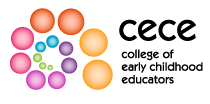7.2 Worldviews
Our worldviews are shaped and influenced by our social location as humans. Social location is unique to individuals and includes factors such as age, abilities, race, culture, gender identity, traditions, family status, access to education, work experience, religion, geographic location, sexual preferences, and more.
“Social location is important because it strongly influences our identity, or our sense of self, and how we see the world” (SVTDT, 2019).
Our social location changes throughout our lifetime and impacts our worldview. Educators engage in self-reflection to understand their social location and its impact on their worldview. In turn this leads to an understanding of the influence their worldview has on the way they engage in the learning space. Ongoing professional learning supports continued self-reflection to help educators understand the impact they have in a young child’s life. Educators continue to learn throughout their career so they are open to new ideas and different worldviews. This self-awareness helps build positive and responsive relationships with children, families, colleagues and community partners.
College of Early Childhood Educators Code of Ethics

B. Responsibilities to Families
RECEs build and maintain responsive and collaborative relationships with families. These relationships are based on mutual trust, openness and respect for confidentiality. RECEs work in partnership with families, sharing knowledge and resources to support the well-being and learning of children. RECEs recognize and respect the uniqueness and diversity of families. They provide meaningful opportunities for families to engage in and contribute to the learning environment and their child’s experiences.
(CECE, 2017)
Working with children and families in Canada requires a strong knowledge of the history of the land and the local communities. Understanding the ongoing systemic racism and Euro-Western bias in Canada is essential for informing educator’s work in early years settings.
Read
Read Chapter Eight in Knowing Home: Braiding Indigenous Science with Western Science: Book 1 to understand more about worldviews and how children learn.

